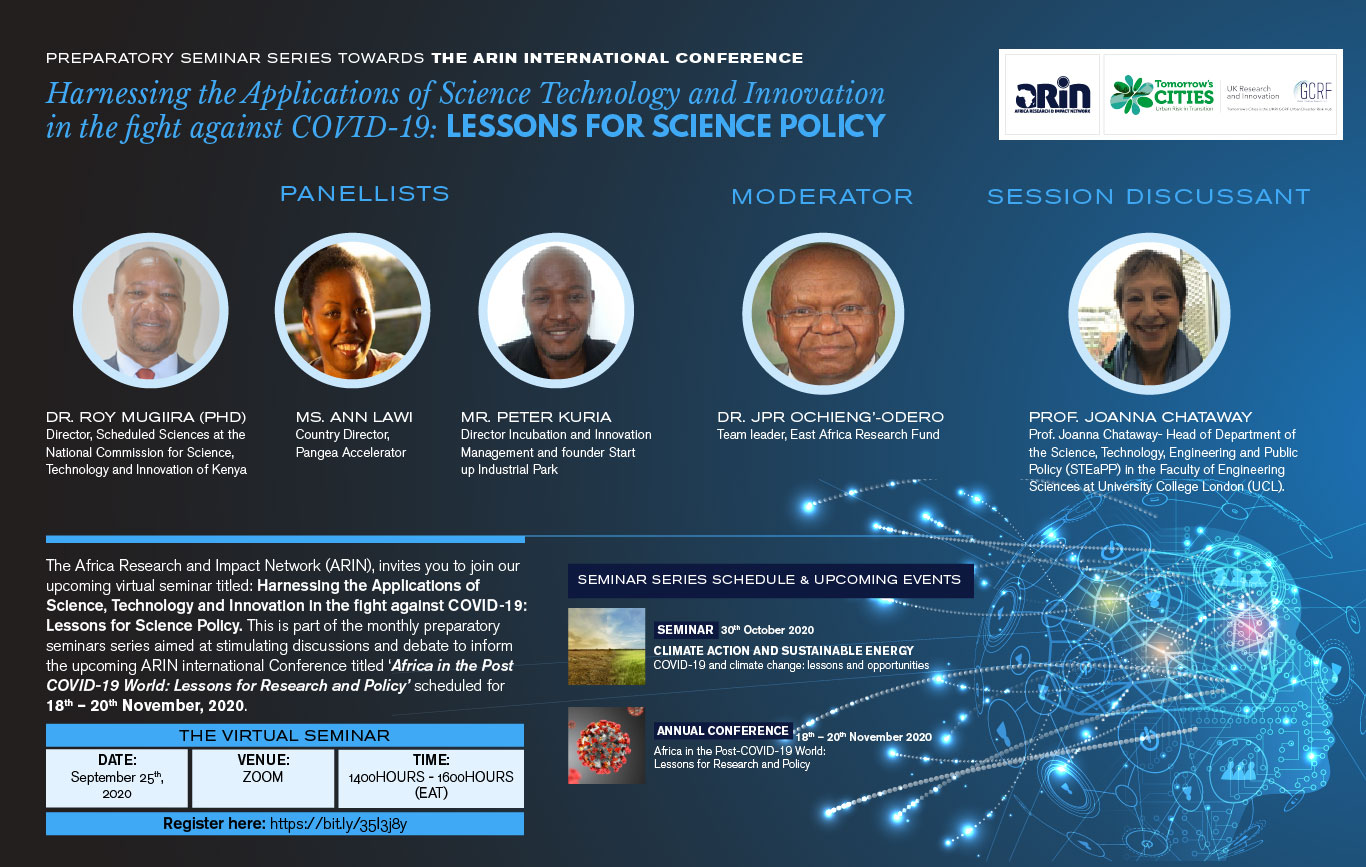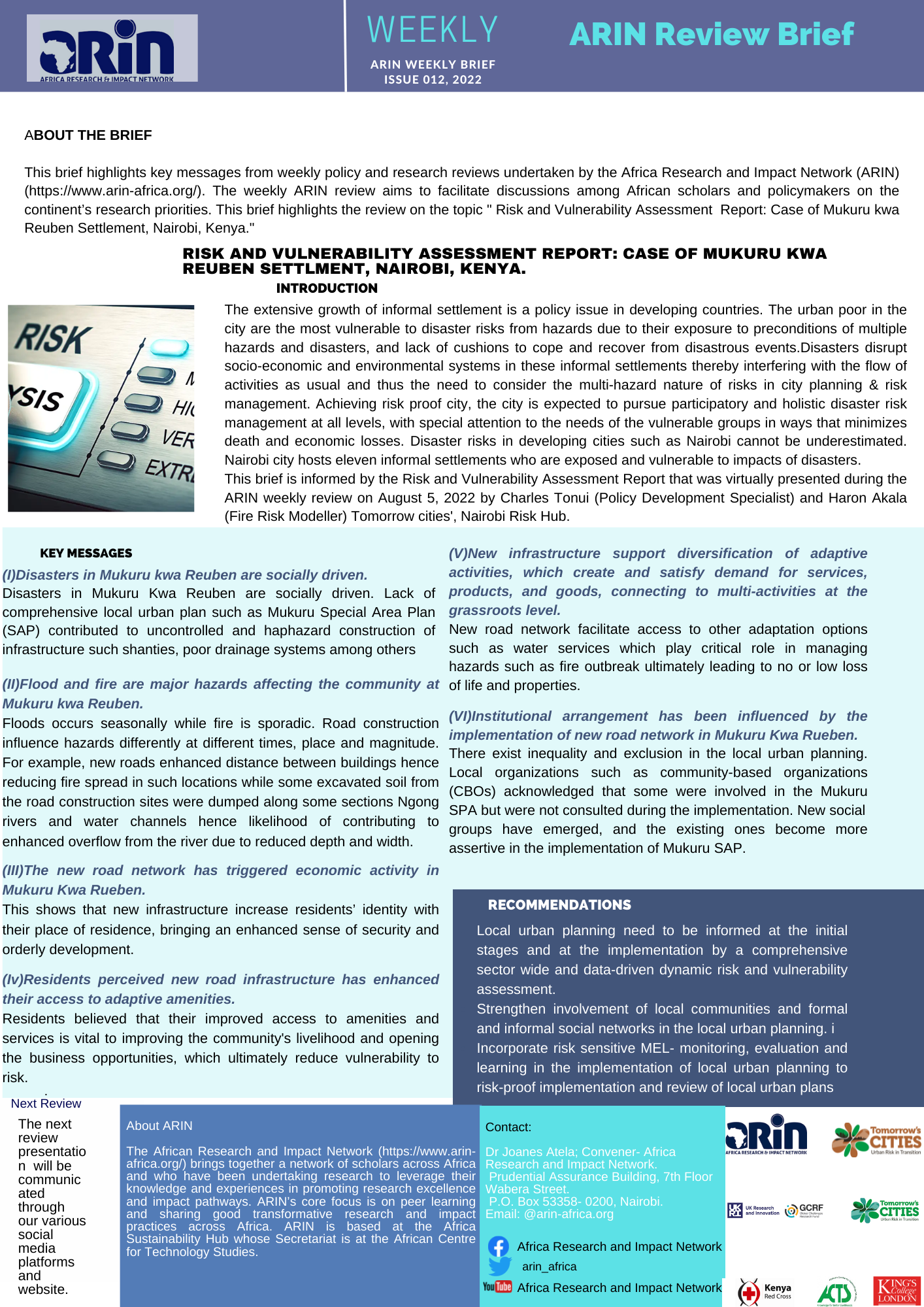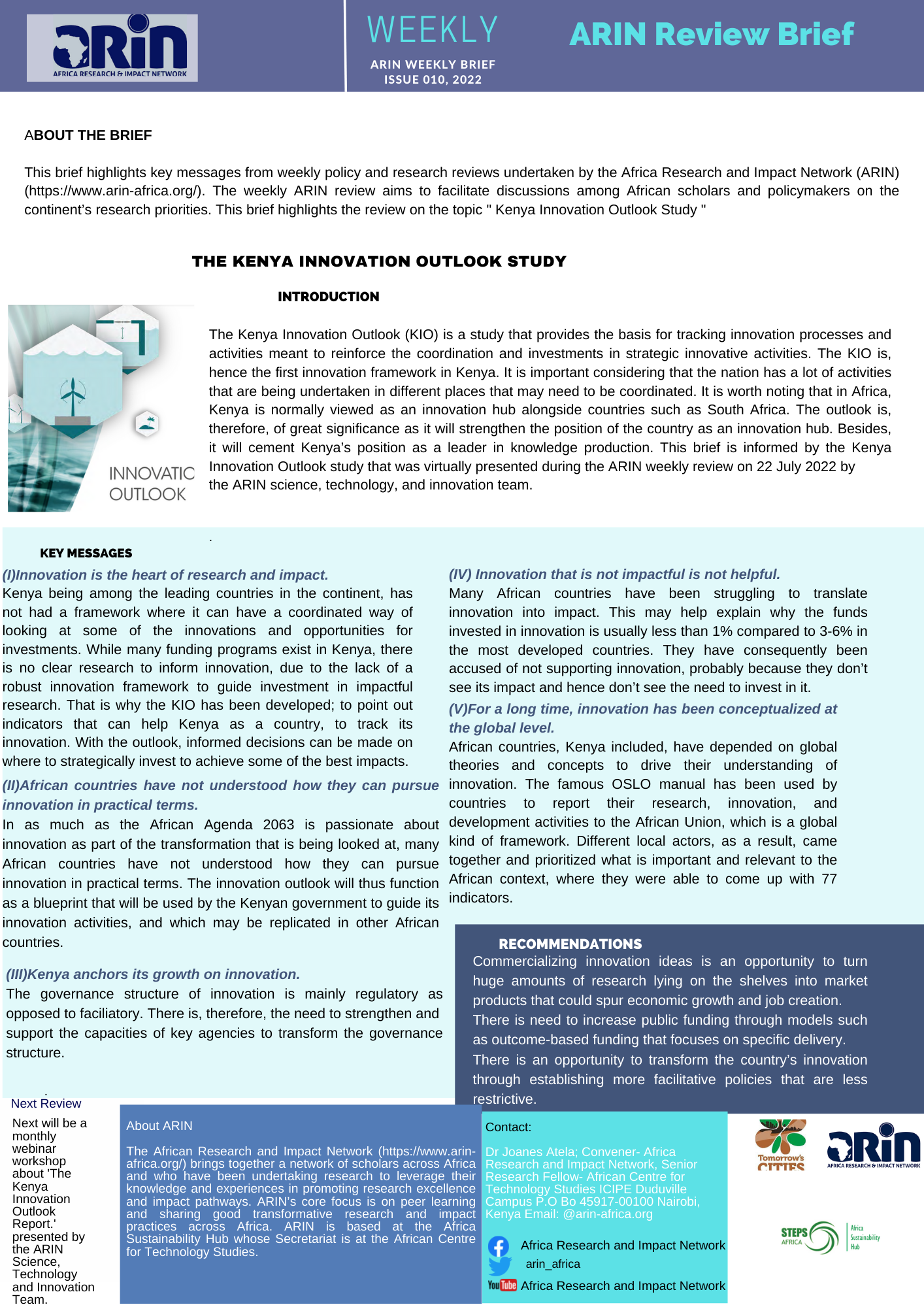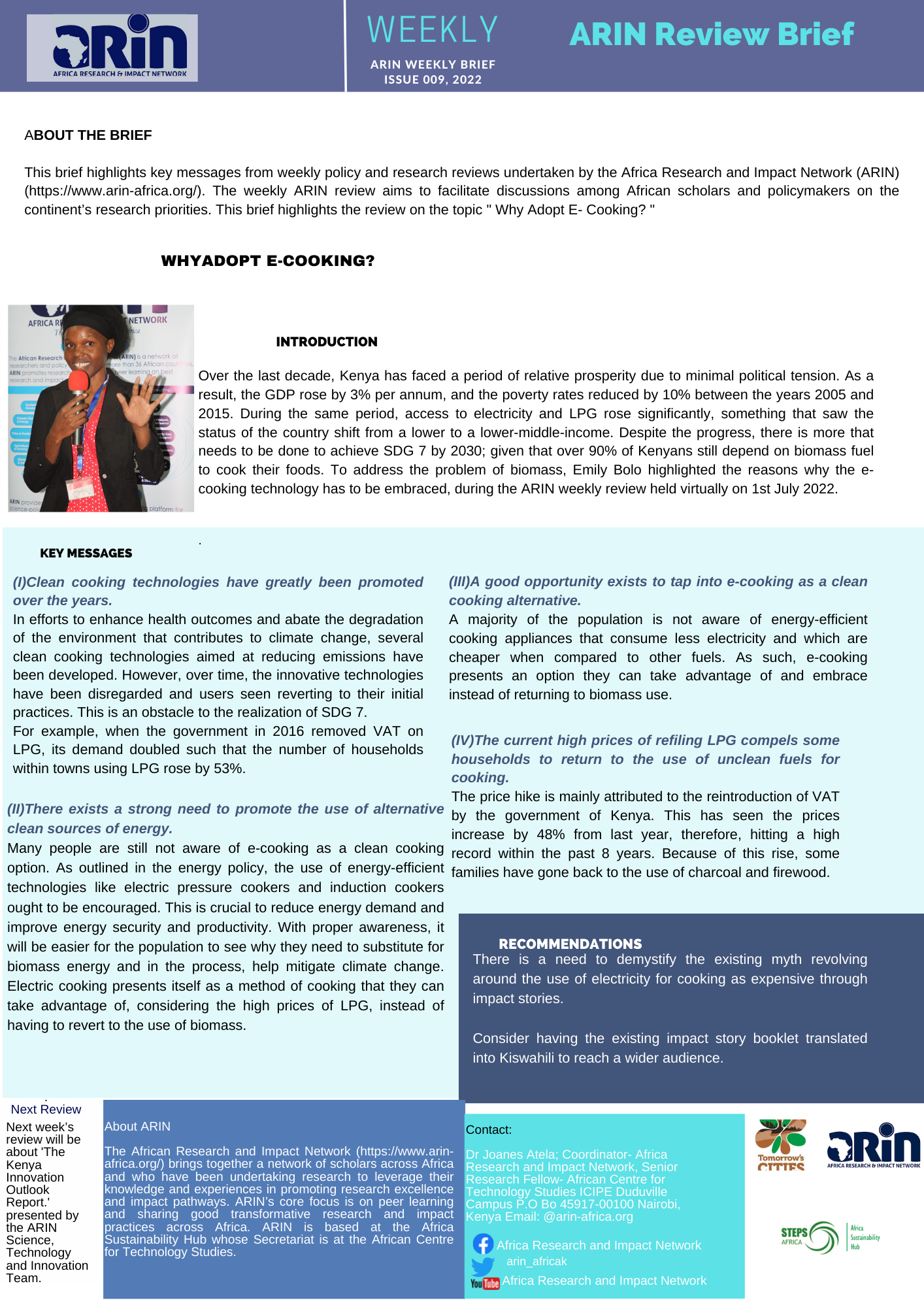On Friday the 25th of September 2020, the Africa Research and Impact Network (ARIN) hosted an online seminar on ‘harnessing the applications of Science, Technology and Innovation in the fight against COVID-19: Lessons for Science Policy’. This was the second in a 3-part webinar series on Post- COVID-19 Lessons for Research and Policy. The first webinar in the series was held on 3rd of September titled, Resilient African City’ beyond COVID-19. The final seminar will focus on Climate Action and Sustainable Energy and will take place on Friday the 30th of October, 2020.
These monthly preparatory seminars are aimed at stimulating discussions and debate to inform the upcoming ARIN International Conference titled ‘Africa in the Post-COVID-19 World: Lessons for Research and Policy’ scheduled for 18th–20th November 2020. These debates and discussions informed by the seminars and the conference will culminate into an overall output- a book volume titled ‘Africa in the Post-COVID-19 World: Lessons for Research and Policy’ edited by Prof. Mark Pelling & Dr. Joanes Atela.
The webinar brought together diverse stakeholders in the STI realm who include; think tanks, researchers, policy makers, innovators, incubators, the productive sector both the formal and informal sector players and STI experts to discuss opportunities STI presents now and post COVID-19. Regional evidence through harnessing grassroots innovation and technologies was discussed following a cases study approach of Kenya and lessons for science policy proposed. Evidence highlighted that digital transformation was amongst the positive elements observed during the pandemic. Discussions supported strengthening efforts by supporting all actors to innovate including the youth, both formal and informal actors. While stakeholders observed that the pandemic has exposed the continent’s vulnerability, they alluded to the fact that it has opened up a space to rethink STI policies to be more inclusive and responsive.




